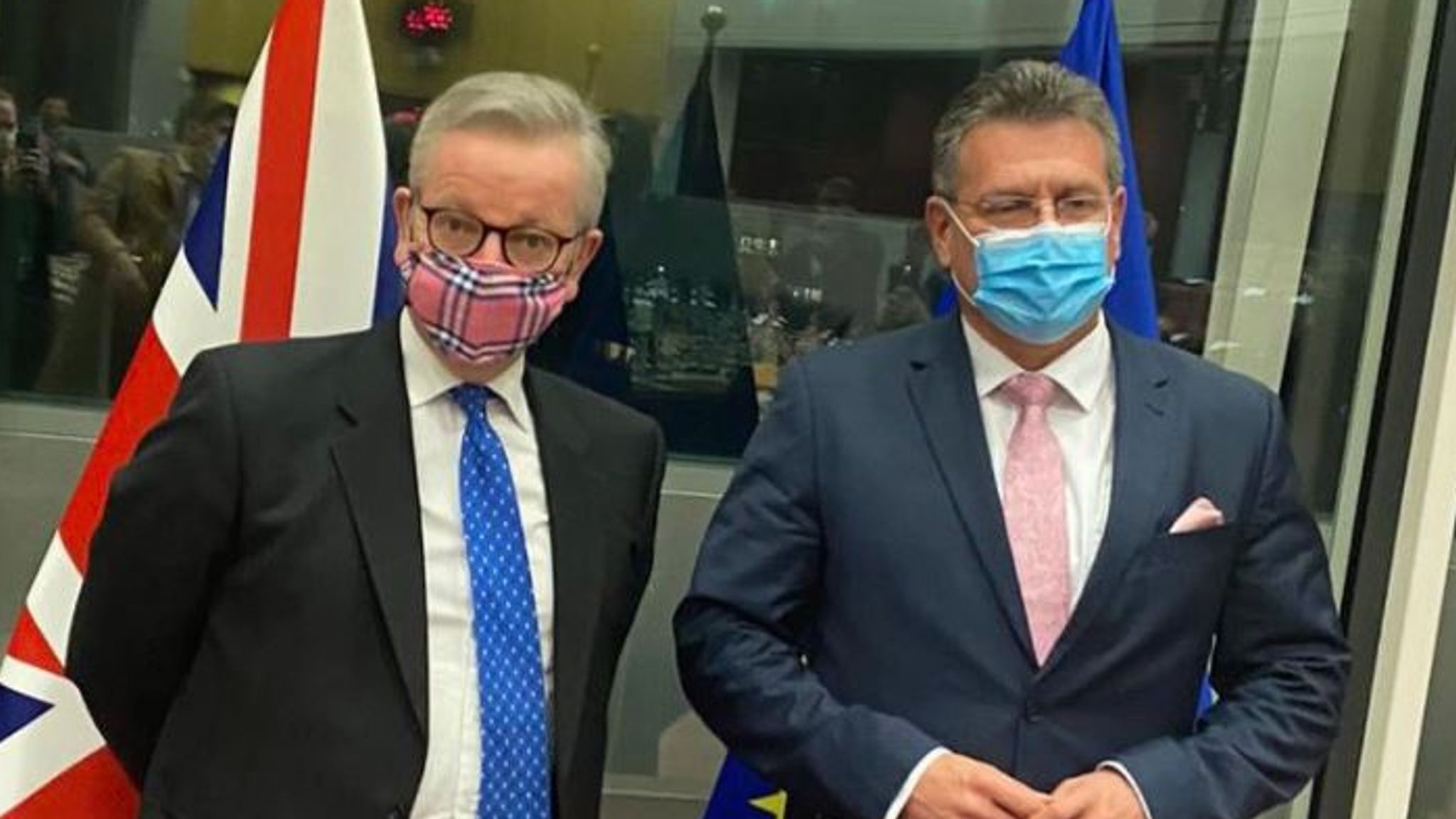
Concessions by the British government have boosted hopes that a remilitarised border through Ireland can be avoided after Brexit, although overall negotiations on a trade deal with the EU could still fail.
It was announced this week that British Prime Minister Boris Johnson has dropped plans which would have allowed ministers to break international law. Barring renewed backsliding, the Ireland protocol of the Withdrawal Agreement reached with the EU in February this year is set to be implemented as planned, with the treaty-breaking clauses in the Internal Market Bill at Westminster being withdrawn.
British minister Michael Gove (pictured, left) and his EU counterpart Maros Sefcovic held discussions separately from the post-Brexit trade deal talks. They agreed the protocol should be enacted on January 1 2021, when the transition period ends and Britain leaves the EU single market and customs union, and the north of Ireland remains under certain EU regulations.
The compromise by London is clearly intended to facilitate a US-UK trade deal next year after strong opposition was expressed by Irish-America to any change which would undermine the 1998 Good Friday Agreement.
Details of new regulations and protocols to be applied at airports and seaports in the north of Ireland were issued on Wednesday. Some 99% of these are set to take place electronically, following the end of a transition period of up to six months.
Supermarket chains will face the greatest adminsitrative burden in implementing the new food and health requirements on goods arriving from Britain to Ireland. These will be overseen by EU officials, but without the proposed embassy-style institution feared by unionists.
The apparent avoidance of major upheaval at the North-South border has been given a cautious welcome in Ireland. Dublin’s foreign affairs minister Simon Coveney said it was a “positive development”, and said he looked forward to further formalisation of the agreements reached.
Sinn Féin Deputy First Minister Michelle O’Neill said agreement on the protocol was welcome, and hoped it would signal a wider Brexit trade deal in talks due to conclude on Sunday.
“It is welcome that the EU will have a permanent presence in the North to monitor the implementation and outworking of the Withdrawal Agreement and Irish protocol,” she said.
Some commentators have expressed the view that Brexit is an ‘own goal’ for unionism, and that the presence of EU officers at Irish seaports could become a stepping-stone to Irish unity.
The DUP welcomed some elements of the agreement, but UUP leader Steve Aiken said the deal was a “bad day for Northern Ireland” and accused the DUP of being complicit.
Ulster Unionist Reg Empey called for DUP leader Arlene Foster and other DUP figures to resign, accusing them of a “dereliction of their duty” by failing to protect the union.
But the DUP deputy leader Nigel Dodds responded by attacking Empey’s role in the negotiation of the Good Friday Agreement, an agreement he said had “released terrorist prisoners on to our streets, destroyed the RUC and put Sinn Féin in government without any decommissioning”.
Regardless of the final outcome of Brexit, there is no longer any doubt that it has refocused attention on the constitutional question and the need for Irish reunification,
Sinn Féin leader Mary Lou McDonald was asked this week about the obstacles now to Irish reunification and the timing of a border poll.
“We’ll do [a united Ireland] in the next decade,” she said. “We’ll do it in this decade actually, this is the decade of opportunity.”
The Sinn Féin leader said she understood unionist concerns over the upcoming period.
“Not alone do we have unionist citizens, we have citizens who are British” she said.
“They’re British today, they’ll be British over Christmas and into the new year – they’re British in a partitioned Ireland and they will be British in a united Ireland.”
Mrs McDonald said it was important to “make space” for discussions with unionists about the potential for united Ireland.
“I would say to our unionist friends, be part of this conversation. I absolutely respect the fact that unionists themselves can articulate their needs, their ideas and concerns around a reunified Ireland much better than I can as an Irish republican woman.”
She added: “Irish reunification isn’t just a Sinn Féin thing.. This is a national project and it belongs to everybody.”
![[Irish Republican News]](https://republican-news.org/graphics/title_gifs/rn.gif)
![[Irish Republican News]](https://republican-news.org/graphics/title_gifs/harp.gif)

